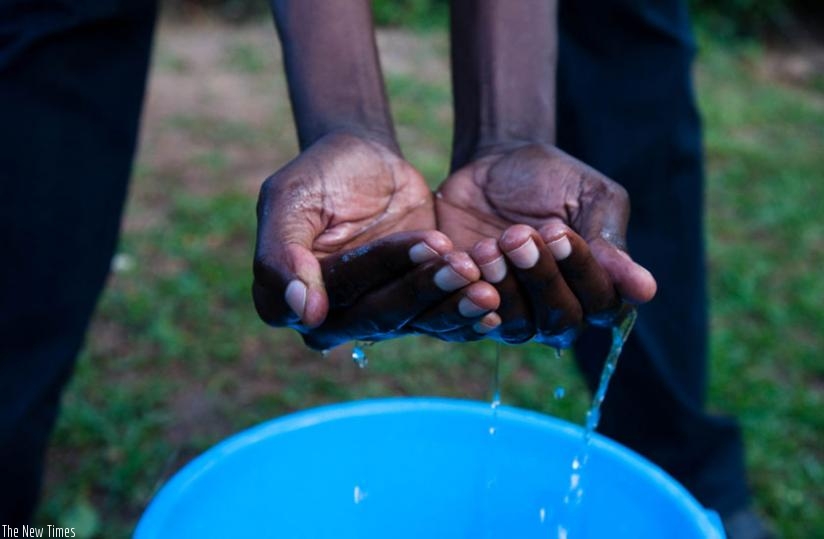The United States Agency for International Development (Usaid) and the Ministry of Natural Resources have commissioned the Migera Water System in Kayonza District expected to serve more than 30,000 residents.


The United States Agency for International Development (Usaid) and the Ministry of Natural Resources have commissioned the Migera Water System in Kayonza District expected to serve more than 30,000 residents.
The Migera Water System was inaugurated by Usaid Mission director Peter Malnak and the Minister for Natural Resources, Dr Vincent Biruta, at the site of the system’s main water pump yesterday.
The system, constructed over the last two years under Usaid’s Rwanda Integrated Water Security Programme (RIWSP), will provide sustainable access to water for residents in Mwiri and Rwinkwavu sectors.
Other beneficiaries include the district’s main hospital, Rwinkwavu, two health centres, seven public schools, markets and trading centres.
Malnak said the water system would contribute to improvement across sectors, including health and agriculture.
"This is an exciting day for us, the Migera Water System is now serving thousands of families with daily access to water that is reliable, safe and sustainable. We are especially pleased with the system’s connection to Rwinkwavu Hospital and the two health centres. Water will be available to those facilities to ensure that patients receive care that includes attention to hygiene and sanitation,” he said.
Usaid handed over the system to the government for future management by Kayonza District.
"This is a good achievement. Local communities were fetching water from a dirty dam, usually used by cattle. They now have safe water…it will make positive change to their lives,” said RIWSP country director Egide Nkuranga.
The Migera Water System comprises of several components; new water supply system, rehabilitation and extension of existing water system in the same area.
The water originates from existing high hills.
Eastern Province remains Rwanda’s most water insecure region.
Minister Biruta said government was committed to extending safe water to all people across the country.
"It is evident that the lack of basic services such as water supply and sanitation leads to poverty and underdevelopment. Sanitation issues need to be observed as an integrated development strategy. Water supply and sanitation are inextricably linked as part of the broader development process,” Dr Biruta said.
"Rwanda recognises the importance of water, water is the source of life every living thing needs.
We will not tire to help communities get water. Residents should guard jealously the system and protect the environment for sustainability,” he added.
The second Economic Development and Poverty Reduction Strategy roadmap for water supply and sanitation sector aims to reach 100 per cent coverage by 2017 for water supply and sanitation services.
editorial@newtimes.co.rw


